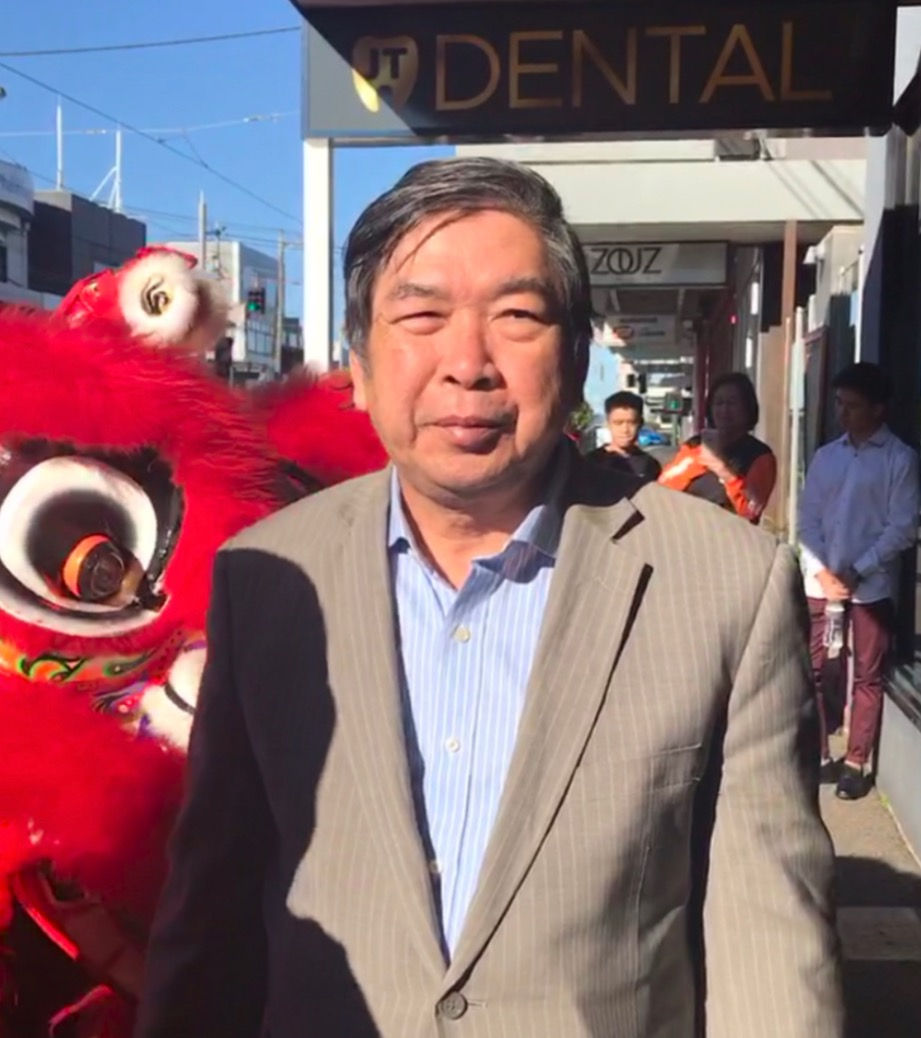Ross Millar
- Laidlaw College Centenary Team
- Mar 1, 2021
- 3 min read
Updated: Jul 12, 2022
2001-2005 / Graduate Diploma in Theology (Waikato Regional Learning Centre)
2014-2018 / Master in Theology (Henderson Campus)

I did a Graduate Diploma part-time at the Waikato Branch, and thoroughly enjoyed it. I liked the way the lecturers let me take Greek and Hebrew paper options, even though I hadn’t taken the first year Greek or Hebrew papers. I had been reading my New Testament in Greek for a number of years, and had started on the Old Testament in Hebrew.
I remember doing a paper on the Psalms. Don Moffatt was lecturing in Auckland, but we both lived in Hamilton. He picked me up at 5.45 am, drove us to the college (I'd sleep) and we'd normally get there by 8.00 am for a 9.00 am lecture. In the afternoons we'd drive back, and I had the lecturer all to myself!
Later on I looked up what was available for the MTh programme – and there was a paper on New Testament Greek discourse and textual criticism! I knew that was a once-in-a-lifetime opportunity, so I took that paper and started an MTh.
The MTh was really special. I finally chose my thesis topic as the Lord's Prayer, contrasting New Testament Greek with NZ Sign Language (NZSL and signed languages are my passion). I had to get two supervisors, one from AUT who was super impressed with the coffee and café at Laidlaw, and the way they presented your thesis to the library.
I didn't know that they read your thesis title at graduation – I found out about this roughly an hour beforehand. So I did a quick check and discovered that, yes, I could sign my thesis title when I received it. That was really special, as a Deaf friend and his interpreter wife were in the audience. It's funny, but I think even that fifteen-second signing of my thesis title opened some eyes a little wider to another world.
My MTh thesis reinforced my love of signed languages. It pushed boundaries and ‘opened eyes’ of Laidlaw staff and other Bible scholars in NZ to the existence of Deaf culture. (OPEN-EYES can be signed with index fingers and thumbs beside eyes with widening gap between fingers and thumbs and widening gap between eyelids. I used pictures in my thesis to show the signs used.)
An example: should OUR FATHER be inclusive or exclusive? In signed languages, WE and OUR can include or exclude other people in the audience. Neither Greek nor English makes this distinction. I only found one commentary that even commented on the word OUR. The Deaf community will make its own decision, but it is not likely to be informed by reading commentaries in a foreign language (English).
My thesis research definitely shaped me, but I believe it has also allowed me to point things out to the hearing community about the needs of Deaf people. We have so many resources in English, but in NZSL there is only one signed version of the Jesus Film project, and, more recently, the daily gospel readings done on Facebook by Deaf Catholics.
After my MTh, I turned down two offers to do a PhD in Biblical Studies. My rationale was that it was time to give back to the Deaf community. I picked up Computer Studies again (it is part of my day job). As I'm writing this, I've just got a nine-week stint as a research assistant at the University of Auckland looking at developing a data notation system for recording signed languages (and hopefully any signed language). It's probably a step on the way to a PhD in the computing and SL linguistics realm, where I hope to create a sign processor. That's like a word processor, but it's for signs, and the final output might be an animated avatar rather than text. Sign languages can't really be written down – there is one way, but it's not accepted in New Zealand and it's really hard to write with computers. What I hope to do is allow Deaf people to write their own signs and stories... and perhaps create a way to record the Bible in multiple different sign languages, including NZSL.

What am I grateful for? Moments. Someone opened up Laidlaw College for a weekend for a Bible Story-Telling workshop for Deaf people. I was one of the organisers, but the workshop was led by Deaf people who told their stories in the upper room at the end. I sat in the background most of the time and answered questions on Bible passages, like pointing out the difference between priests and Pharisees and where Samaria was on a map. This prompted me to see what was on offer for MTh papers, which was how I found out about the New Testament Greek discourse paper that got me started on my MTh, and led to my thesis topic on NZSL.





Comments